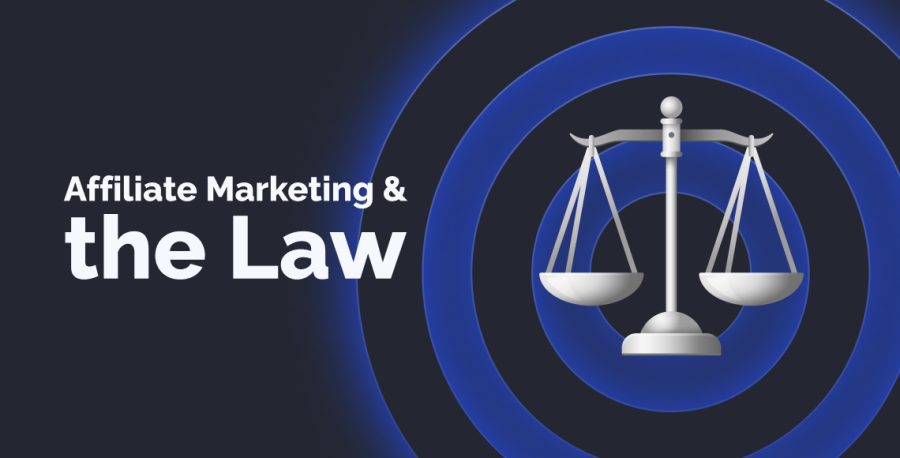Running the business of affiliate marketing is usually harmless. However, sometimes things can get out of hand — partially due to laziness, rooted deep inside the human nature, partially due to our bounded rationality. Whatever the causes are, it is good to know the most common pitfalls of acting illegal and how to avoid them. This is exactly the topic of this article. We are about to explain how to keep your whitehat donned and what are the major violations in affiliate marketing. We will also talk about the “chameleons” — products, which can be white or black, depending on the context. To top it all, we will provide a list of useful tips for your future endeavors.
Affiliate Marketing Is Legal… the Related Activities Might Be Not Though
Occasionally, the question arises whether affiliate marketing is legal at all, given its broad scope, which includes whitehat, grayhat, and blackhat products and practices.
On its own, affiliate marketing is a perfectly legal activity, however it might touch upon not-so-legal phenomena at times. For instance, the affiliates might violate someone else’s copyrights, when making creatives, like push banners or basic pieces of text. You can double-check if your creatives are original by uploading them to the search bar of Google. That’s right, you can even check wanna-be-banners this way, just click the “Search by image” button and upload a picture to reveal its backstory.
As long as you remain an honest marketer, you should be fine. But once you attempt to deceive people and promote something fraudulent — prepare for the consequences. That’s the borderline between the so-called hats of affiliate marketing:
- Whitehat = perfectly legal practices (compliance with the rules of affiliate and ad networks) and products (eCommerce, Antivirus software)
- Grayhat = legal but unethical or questionable practices (cloaking) and products (iGaming, One-night stands)
- Blackhat = totally illegal practices (scamming, fraudulent traffic) and products (drugs, slave trading, darkweb stuff)
Do you know that buying keywords from Google Ads without disclosing it to your website visitors is a violation of the Federal Trade Commission (FTC) laws? According to its policy, every paid advertising is to be disclosed, so that the user can make a thought-out decision.
Fraudulent activity is not necessarily reserved just for the humble customers. An affiliate can attempt to trick an advertiser by running fraudulent or bot traffic, which is bad for all the parties involved: other affiliates get longer hold periods, advertisers lose their profit, the fraudster grows infamous and gets banned everywhere.
Not Only Affiliates Can Be Guilty
No need to think that the main violators here are the affiliates only. Publishers can also violate a couple of laws and norms with ease. For example, do you know that in order to stay compliant with the FTC policy, you need to include an affiliate marketing disclaimer. Stating explicitly that you earn a commission whenever a visitor clicks on a website ad benefits you in three ways:
- Programs like Amazon Associates require the disclaimer
- The FTC demands it
- It’s a sign of respect to your audience
For you to be absolutely compliant with the regulations, your disclaimer has to follow the rule of three C and be:
- Clear — meaning no ambiguity, like “may take money” or “sometimes”
- Conspicuous — the disclaimer is to be placed in a highly visible spot
- Close — place the disclaimer as close as possible to the affiliate link itself
As long as the disclaimer conveys all the information needed and is not misleading, you can get very creative, when designing one yourself. For example, instead of apologizing for having affiliate links on your website, turn everything upside down and state that no commission is not OK, like Missyward, an affiliate marketing resource, did:
In a nutshell, you can assume that I will make money from every post I put on this blog. If I’m not making money from every blog post, then it was an oversight on my part and it will be corrected soon.
Alternatively, draw inspiration from A Broken Backpack and highlight the benefits for both parties involved:
If you click on my affiliates/advertisers links, I am going to receive a tiny commission. AND… Most of the time, you will receive an offer. Win/Win! The products that I advertise are the ones I believe in.
When Blackhat Becomes White and Vice Versa
At times, you might think that some things are obviously good or bad, just because you have grown up with them. Yet, in some regions, your hunch may fail you, and you might end up either getting into troubles or losing a lucrative opportunity.
For example, the Netherlands has “the oldest profession” legalized and regulated, so, theoretically, you can promote the related ads there and keep your whitehat unstained. Yet, some Muslim countries, like Saudi Arabia, do not tolerate any forms of alcohol, officially at least. Attempting to do so is a violation of the local laws, which can cost you more than just losing your precious whitehat.
Affiliate Marketing Is Not Run by Pyramidheads
Affiliate marketing has little-to-nothing in common with pyramid schemes. Ponzi schemes offer big rewards quickly with almost no efforts, which sounds suspicious already. Contrary, affiliate marketing is a full-scale work where unwavering devotion is required for success. Instead of getting rewarded for luring more people into the pyramid trap, you are paid out a commission for helping out to sell an actual product. Basically, you are paid out for doing a good deed of leading a customer to a seller.
A Small Collection of Useful Tips & Hints
To make your life easier, here is a short list with the points you should always check if you are into business of affiliate marketing:
- Mark all your affiliate links with disclosure — just do it! Share the truth about you making money on someone’s clicking. This won’t hurt a bit, trust us.
- Accumulate your mailing list responsively — the users have to give an explicit consent to receiving your push notifications, otherwise you are violating their privacy and straight up disrespect them. By the way, it is good to include a disclaimer in your mails too! Thankfully, with RollerAds, you don’t have to worry about it, because we send push notifications exclusively to the audience, which have given their consent to receive the notifications
- Be objective (or at least pretend to be so) — no product, service, or person is flawless, so neither should be your product reviews. The art of promotion is not about concealing the cons, but about countering them with, or better yet turning them into, the pros.
- Research prior to signing up for an offer — refrain from promoting anything fishy, because it will be difficult for you to sound genuine. Check out CpaRoll, our sister company, for some good offers, both in terms of content and payouts.
- Don’t steal, don’t exaggerate — claiming that the article you are reading is one of a kind and the best in the world is a bit… arrogant, to put it mildly. If you can feel it, then why won’t your clients feel the same when you exaggerate the facts? As for stealing, respect the intellectual work of other people and make your own creatives. Thankfully, we have Creatives Library, filled with great examples and readily available creatives.
Conclusion
That covers it, ladies and gentlemen. As long as you respect the intellectual property of the others and do not lie about the products you promote, you should be fine. There is nothing shameful in telling the others that you earn a commission on some referral links.
Make sure to get acquainted with the specifics of the GEO you work with. Who knows, you might be violating the law right now or losing a lucrative opportunity. Also, telling about all the pros and cons of a product helps you to build more genuine connection with the audience. So do it, and the RollerAds team will help you if needed.





